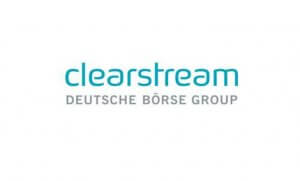CFTC aims to use Court ruling that virtual currencies are commodities in other cases
The US regulator seeks to use the ruling Judge Jack B. Weinstein in its case against My Big Coin Pay too.

As FinanceFeeds reported last week, Judge Jack B. Weinstein of the New York Eastern District Court agreed with the Commodity Futures Trading Commission (CFTC) and Chicago Mercantile Exchange Inc that virtual currencies are commodities under the Commodity Exchange Act (CEA). The Order was delivered as a part of a fraud case brought by the CFTC against Patrick K. McDonnell, of Staten Island, New York, and CabbageTech, Corp. d/b/a Coin Drop Markets (CDM), a New York corporation. The defendants are charged with fraud and misappropriation in connection with purchases and trading of Bitcoin and Litecoin.
Now, the CFTC is seeking to use this Order to support its action against other fraudulent cryptocurrency schemes. In the latest filings with the Massachusetts District Court, the regulator is referring to Judge Jack B. Weinstein’s Order in the case launched by the CFTC against McDonnell. This Order will be used as supplemental legal authority in the case brought by the CFTC against My Big Coin Pay, Inc., Randall Crater, and Mark Gillespie.
In particular, the CFTC refers to the Judge Weinstein’s ruling that:
- virtual currencies fall well-within the Commodity Exchange Act’s definition of ‘commodities’;
- the Commission “has standing to exercise its enforcement power over fraud related to virtual currencies sold in interstate commerce”.
Let’s recall that the CFTC had suffered a setback in its case against My Big Coin Pay. The regulator had hoped for a preliminary injunction hearing to be held on January 25, 2018, as the temporary restraining order does not enjoin the ongoing fraud, including the fraudulent solicitations currently on the Internet. The counsel for the defendants, however, insisted that the current orders are sufficient and that a delay would not harm the CFTC.
On January 30, 2018, Judge Rya W. Zobel agreed to reschedule the hearing for March 15, 2018, thus giving the defendants extra time. This illustrated the complexity of legal proceedings against virtual currency scams. Technically, the defendants may continue to solicit investor funds.
The CFTC has charged Randall Crater, Mark Gillespie, and My Big Coin Pay, Inc., with misappropriating over $6 million from customers. The case also targets Relief Defendants Kimberly Renee Benge, Kimberly Renee Benge d/b/a Greyshore Advertisement a/k/a Greyshore Advertiset, Barbara Crater Meeks, Erica Crater, Greyshore, LLC, and Greyshore Technology, LLC for allegedly receiving customer funds without providing any legitimate services to clients and without any interest or entitlement to such customer funds.
The regulator has found that customer funds had been transferred into the personal bank accounts of the defendants, and that the defendants had used those funds for personal expenses and the purchase of luxury goods.
Specifically, the CFTC Complaint alleges that from at least January 2014 through January 2018, the Defendants fraudulently solicited My Big Coin Pay customers in the United States by making false and misleading claims and omissions about MBC’s value, usage, and trade status, and that MBC was backed by gold. Defendants also allegedly fraudulently solicited numerous customers in the District of Massachusetts, receiving in excess of $5 million from those customers.
The case is captioned Commodity Futures Trading Commission v. My Big Coin Pay, Inc. et al (1:18-cv-10077).









